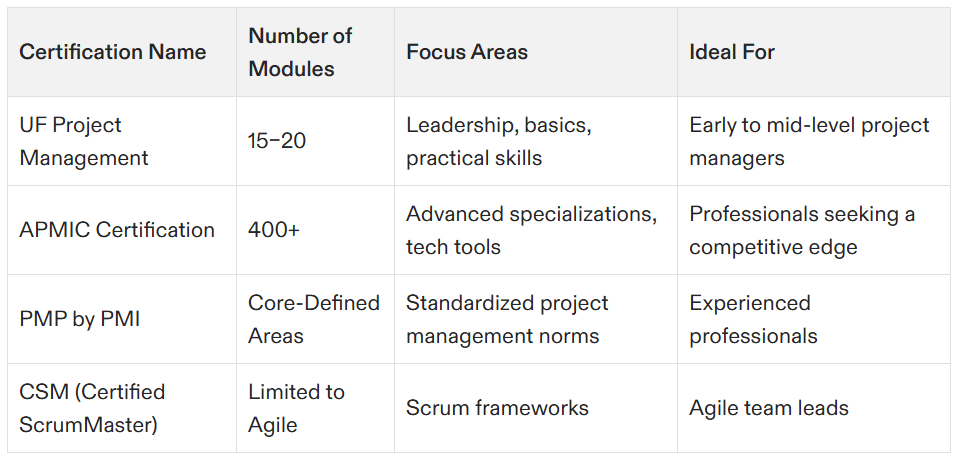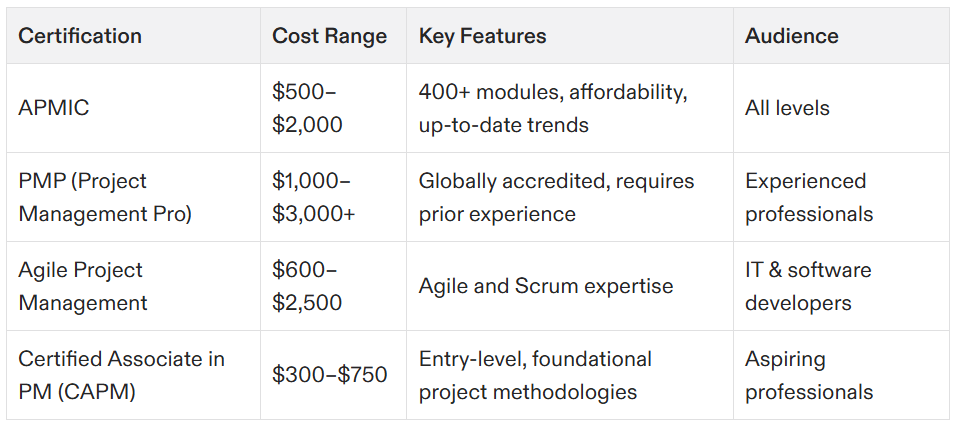Table of Contents
Ever thought about traveling the world, but instead of sipping cocktails, you're leading global projects and catapulting your career across continents? Welcome to the world of International Project Management Certification—your first-class ticket to becoming a global business maestro!
What is International Project Management Certification?
International Project Management Certification isn't just a fancy title; it’s your passport to mastering the art of juggling projects across continents without breaking a sweat. This certification is designed to prove that you’ve got what it takes to handle complex, cross-border projects with finesse, integrating different cultures, time zones, and business practices seamlessly.
Why Should You Care About This Certification?
In the intricate web of today's hyper-connected economy, the landscape of business has expanded beyond local shores to global horizons. As businesses navigate this new terrain, the demand for professionals who are not merely local thinkers but global strategists and executors has skyrocketed. Here’s why getting an International Project Management Certification should be your next strategic career move:
1. Global Competence
This certification isn’t just a badge—it’s a testament to your ability to navigate and lead across the diverse and complex tapestry of global markets. With this qualification, you demonstrate your capability to manage and synergize teams that span different continents, cultures, and customs. It’s about showing potential employers and collaborators that you’re not just managing projects but are sculpting the global business landscape, ensuring that multicultural teams work harmoniously towards common goals.
2. Higher Salary
Money talks, and in the case of certified professionals, it speaks volumes. Statistical data consistently shows that individuals with an International Project Management Certification can earn up to 30% more than their non-certified counterparts. This certification opens the door to higher salary brackets because it underscores a professional’s proven expertise in managing high-stakes, high-impact projects across borders. It’s not just about the money—it’s about the recognition of your skills and the value you bring to multinational corporations.
3. Career Advancement
With this certification, you're not just improving your job prospects; you're setting the stage for substantial career advancement. This credential is a key that unlocks doors to senior management roles and executive positions in major global enterprises. It’s a clear indicator to current and prospective employers that you possess the leadership qualities, strategic foresight, and operational expertise necessary to take on more significant challenges and responsibilities.
4. Enhanced Skill Set
Project management on an international level involves a unique set of challenges, from navigating time zone differences to understanding international regulations and managing cross-cultural teams. This certification prepares you to handle these complexities with a robust curriculum that covers advanced risk management, strategic alignment, and adaptive leadership techniques. By mastering these skills, you position yourself as a leader who not only knows the theory but can also apply it effectively in real-world, global scenarios.
5. Professional Credibility
Earning an international certification is a powerful way to build your professional credibility. It signals to peers, supervisors, and industry leaders that you are committed to your professional growth and capable of contributing at the highest levels. This sort of recognition is crucial in building a strong professional network, gaining access to exclusive industry insights, and securing leadership positions in project management.
6. Broadened Perspectives
This certification does more than just expand your professional toolkit; it broadens your worldview. It exposes you to different project management practices, business strategies, and problem-solving approaches used in various parts of the world. Such exposure is invaluable as it enhances your ability to think critically and creatively, making you a more versatile and adaptable professional.
7. Networking Opportunities
Becoming certified opens up numerous networking opportunities with other high-caliber professionals across the globe. Whether through online forums, conferences, or dedicated seminars, you’ll connect with individuals who are at the top of their game in international project management. These connections can lead to collaborative opportunities, mentorship, and even new career paths.
8. Market Demand
The demand for skilled project managers who can competently handle international projects is on the rise. Companies, now more than ever, need leaders who can effectively coordinate projects that span multiple countries and involve various stakeholders. With this certification, you meet the market demand head-on, equipped with the knowledge and skills that are highly sought after in today’s global market.
Key Steps to Getting Certified in International Project Management
Embarking on the journey to earn an International Project Management Certification is a significant commitment that can dramatically elevate your professional credentials and open up new global opportunities. Here are the detailed steps you should follow to ensure you are well-prepared and can navigate the process effectively:
1. Choose the Right Program
The first step in your certification journey is to choose the right program that aligns with your career goals and professional needs. There are several well-regarded certifications available, each with its unique focus and requirements.
PMP (Project Management Professional): Offered by the Project Management Institute (PMI), PMP is one of the most prestigious project management certifications available. It is highly recognized globally and focuses on broad project management skills applicable across industries and methodologies.
PRINCE2 (Projects IN Controlled Environments): This is a process-based method for effective project management, widely recognized in the UK and internationally. It is particularly useful for those looking for a structured approach to managing projects.
APMIC (Advanced Project Management International Certification): Known as the gold-standard for those looking to dive deep into project management, APMIC offers a comprehensive curriculum with over 400 modules that cover everything from foundational project management principles to advanced strategies and trends.
Choosing the right certification should be based on your current skills, professional experience, and the specific requirements of the industry or role you are targeting.
2. Preparation
Once you have selected the appropriate certification, the next step is to thoroughly prepare for it. This involves a deep dive into the body of knowledge that the certification covers.
Study Materials: Begin with the official textbooks and study guides recommended by the certification body. These materials are designed to cover all the topics you'll be tested on.
Training Courses: Consider enrolling in formal training courses offered by accredited training providers. These courses can be online or in-person and are often led by certified professionals who can provide insights and clarifications beyond what you can learn from books.
Practice Tests: Utilize mock exams and practice tests to familiarize yourself with the exam format and question types. This practice is crucial as it helps you manage your time effectively during the actual exam.
For those pursuing APMIC, leveraging its extensive range of modules will provide a broad and deep understanding of both traditional and modern project management techniques, from Agile methodologies to the emerging trends in digital transformation in project management.
3. Examination
The examination is a rigorous test of your project management knowledge and skills. It typically includes multiple-choice questions that cover the breadth of the project management processes, methodologies, tools, and techniques.
Exam Strategy: Develop a strategy for tackling the exam. This might include time management techniques, a method for dealing with difficult questions, and a plan for review.
Health and Readiness: Ensure you are well-rested and healthy on the day of the exam. A clear mind and a focused attitude will help you perform your best.
4. Continuous Learning
Obtaining your certification is not the end of your learning journey. The field of project management is dynamic, with new methodologies, tools, and best practices developing constantly.
Professional Development Units (PDUs): Most certifications require that you earn a certain number of PDUs to maintain your certification. These can be obtained through various professional activities, such as attending workshops, seminars, or even volunteering in project management-related activities.
Stay Updated: Keep yourself updated with the latest in the field of project management by subscribing to professional journals, joining project management forums, and participating in relevant webinars and conferences.
Following these steps diligently will not only prepare you for the examination but also equip you with the knowledge and skills needed to excel in any project management role. The certification will validate your capabilities to current and potential employers and set you apart in the competitive global marketplace, making you a valuable asset to any organization.
Facts About Project Management
The History of Project Management
A detailed overview of the four periods of project management history, from ancient times to modern methodologies like Agile
Project Management: History & Evolution
A LinkedIn article discussing project management's origins, including milestones like the Gantt chart and the Manhattan Project.
Timeline of Project Management
A Wikipedia page that outlines key events in project management history, including the invention of CPM and PERT methods.
History of Project Management
A Microsoft Support article explaining how project management evolved from the late 19th century to modern Agile methods.
A Brief History of Project Management
This article explores project management's journey, emphasizing its formalization in the 1950s with methodologies like PERT and CPM.
A Brief History of Project Management - IMS
A timeline-based history covering key developments like Henry Gantt’s contributions and the rise of computer-based tools.
A Short History of Project Management Timeline Video
A video resource providing a visual timeline of over 30 significant events in project management history.
Project Management - A Historical Timeline (PDF)
A detailed PDF document that places project management developments into a broader historical context.
Learning Project Management from Ancient Egypt
Insights into how ancient Egyptians used early project management techniques during pyramid construction.The Apollo 11 Mission and Modern Project Management
An analysis of how Margaret Hamilton's leadership in software engineering contributed to the Apollo 11 success story.
Final Thoughts
Ready to become the project leader the world needs? International project management certification is not just a credential; it’s a game-changer for your career. With the APMIC certification, you’re not just getting trained; you’re getting transformed. Start your journey today and join the ranks of top global project managers. Check out more at APMIC – because when it comes to project management, we mean business!
FAQs
What is the best project management certification for a global career?
The APMIC certification stands out with its comprehensive global focus and 400+ modules.
Can I get international project management certification online?
Yes, many institutions including APMIC offer online courses that allow you to study from anywhere in the world.
How long does it take to complete the APMIC certification?
Typically, it takes 6-12 months, but it varies based on your pace and schedule.
What skills are crucial for international project managers?
Key skills include cross-cultural communication, strategic planning, and risk management.
How much does it cost to get certified in international project management?
Costs can range from $1,000 to $5,000 depending on the program and institution.
Is project management certification worth it?
Absolutely! It significantly boosts your career prospects and earning potential.
What are the prerequisites for obtaining a project management certification?
Requirements vary, but typically include a combination of education and experience.










